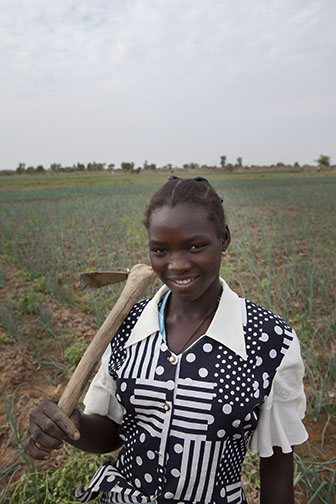Get this: 80% of Burkina Faso’s population attempts to make it’s living in subsistence agriculture while only 19% of land is arable. That makes farming kind of like a guy getting a date in a country where men outnumber women four to one. Poor soil qualities, fluctuations in rainfall, and topsoil erosion all contribute to the country’s crop production woes. Recent work is displayed here from the Millennium Challenge Corporation’s agricultural programs in Burkina Faso.
MCC, a humanitarian arm of the US State Department, is boosting production and access to markets for small farmers in this West African country, however. The programs shown here document the organization’s efforts in sustainable agriculture, livestock vaccination, fertilizers, and agro-forestry, as well as ground-breaking, innovative initiatives. In the Market Information Systems program, agents use cell phone technology to publish regional market prices for a variety of commodities. Farmers who subscribe to the database can then find out whether or not its worth it to take their harvest to the next market, 10km or 20km down the road.
Around 4% of Burkina Faso’s woodlands are disappearing every year. Most losses are linked to farming, but the expanding Sahel is also a contributing factor. MCC’s agro-forestry program educates small farmers about the benefits of preserving precious forest resources and makes seedlings more available through the establishment of community nurseries. MCC has invested in Burkina Faso to the tune $4.8 million. Though divided among infrastructure, education, and agriculture initiatives, it’s certainly not small potatoes.
















